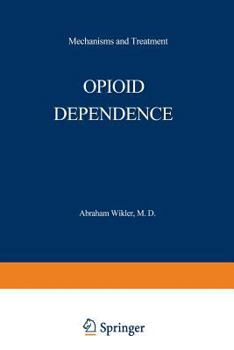Opioid Dependence: Mechanisms and Treatment
Select Format
Select Condition 
Book Overview
A major problem in the treatment of opioid dependence has been the persistence of relapse despite detoxification and enforced prolonged abstention from drug use, with or without conventional psychotherapy and other efforts at rehabilitation. Both initial addiction and subsequent relapses are usually ascribed to the quest for opioid-produced euphoria in persons with character disorders. This formulation is in accord with one-half of the common sense "pleasure-pain" principle, but it ignores the other half, namely, the long-lasting dysphoric consequences of re- peated opioid use (distressing abstinence phenomena, sexual distur- bances, disruption of marital status, unemployment, enmeshment in criminal activities, arrests, and imprisonment). In any case, the pleasure-pain principle is an empty tautology since it is incapable of refutation by any conceivable objective data that might seem contradic- tory, inasmuch as it can be "saved" by invocation of untestable uncon- scious intervening variables. Less tied to the pleasure-pain principle is the view that relapse is due to long-lasting sequelae of previous opioid addiction, resulting from complex conditioning processes, both operant and classical, involving pharmacological, environmental, social and personal variables. In this view, relapse is not simply a re-enactment of initial opioid use, but is a "disease, sui generis" a disease of its own kind. The factors contributing to this disease, sui generis are reviewed in this book.
Format:Paperback
Language:English
ISBN:1468438689
ISBN13:9781468438680
Release Date:March 2012
Publisher:Springer
Length:256 Pages
Weight:0.85 lbs.
Dimensions:0.6" x 6.1" x 9.2"
Customer Reviews
0 rating





